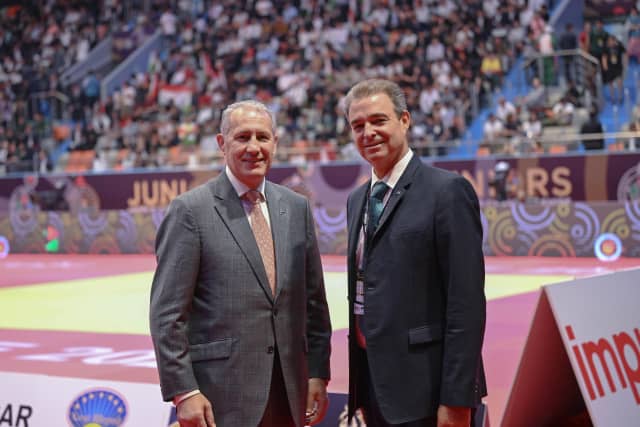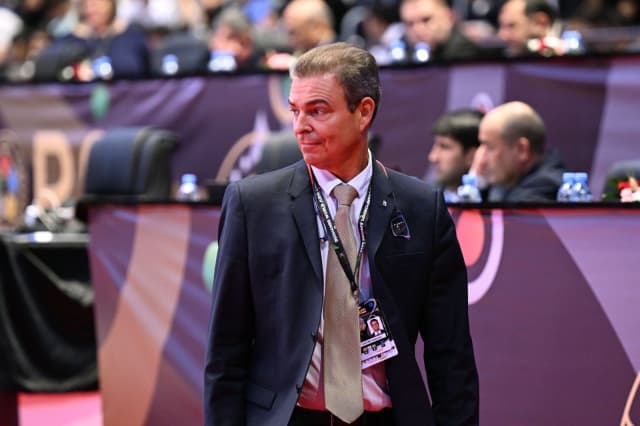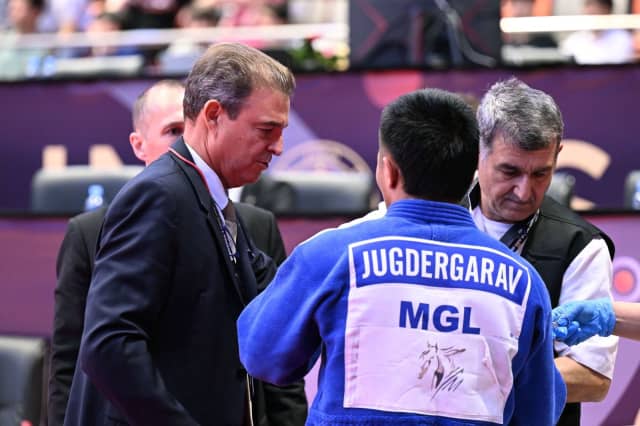“I don’t want to speak as if from our side, separately, because actually we are all on the same side. We work with referees, the IJF Education Commission and the IJF Sport Commission to give the athletes here, as we did in Lima recently for the cadets, the medical support they need. From cadets to juniors, on the way to seniors, one of the most important facets of our sport is education, the possibility that we can teach the meaning of judo. This is not just a sport but a way of life and part of our role is to teach how important it is to have a positive mentality, to be a good person; something they can take into their futures beyond competitive judo.

From the medical point of view, we are partly present to show the world not just the science of injury prevention or doping education. Our role is an integral part of the formation of athletes in their sporting lives. Judo is a vehicle to lead the athletes forward towards becoming good human beings, contributors to society. Physically and mentally, we prepare the athletes for society, to be good people.”
The 2024 theme for World Judo Day is ‘Wellbeing’ and Dr Castro’s philosophy ties in perfectly; this is the core of his role within the international judo community.
“There is a lot of emphasis on young athletes for how they prepare for these big events. When they come to the Tour or IJF events, it is the same environment here as for the seniors. They learn a set of standards and that teaches them to cope, to be disciplined. We are focused on whole teams too and not just athletes. Teaching coaches is important. Now these coaches are teachers, teaching the athletes how to behave, how to prepare and how to recover and so they are important. We have to show them how to prevent injuries and that it is more than just medicine. For sickness we can give medicine but we want them to be healthy and strong to face life before there is a need for medicine.
Some countries send the same doctors at all levels. For many teams though there are different medical teams with the juniors, so we have many new medical staff from the federations and we have to ensure all understand the rules and procedures at this level. We don’t wait for them to ask, we show all new medical teams exactly where they can be, how they can support their athletes, the logistics of our field of play. This creates concurrence."
"We also have a big job within doping and we have to ensure positive education in this area. Doping control processes have huge implications and so we have to be responsible for this. In cadets and juniors, many are being tested for the first time and we want them to fully buy in to the process. To have clean athletes now, it is important to support them for a long and healthy future both inside and outside sport. We could say things harshly, that when someone accepts to cheat in sport, it can become a philosophy of life and the acceptance of cheating can then continue into post-competition lives. Prevention of doping is important therefore for all of society and not just in sport.”
Dr Castro is on call in the Kasri Tennis Arena throughout this championship, an integral part of the elite sport machine which supports all of its stakeholders. His role is one of wellbeing, one the founder of judo, Jigoro Kano, would be very supportive of indeed.




